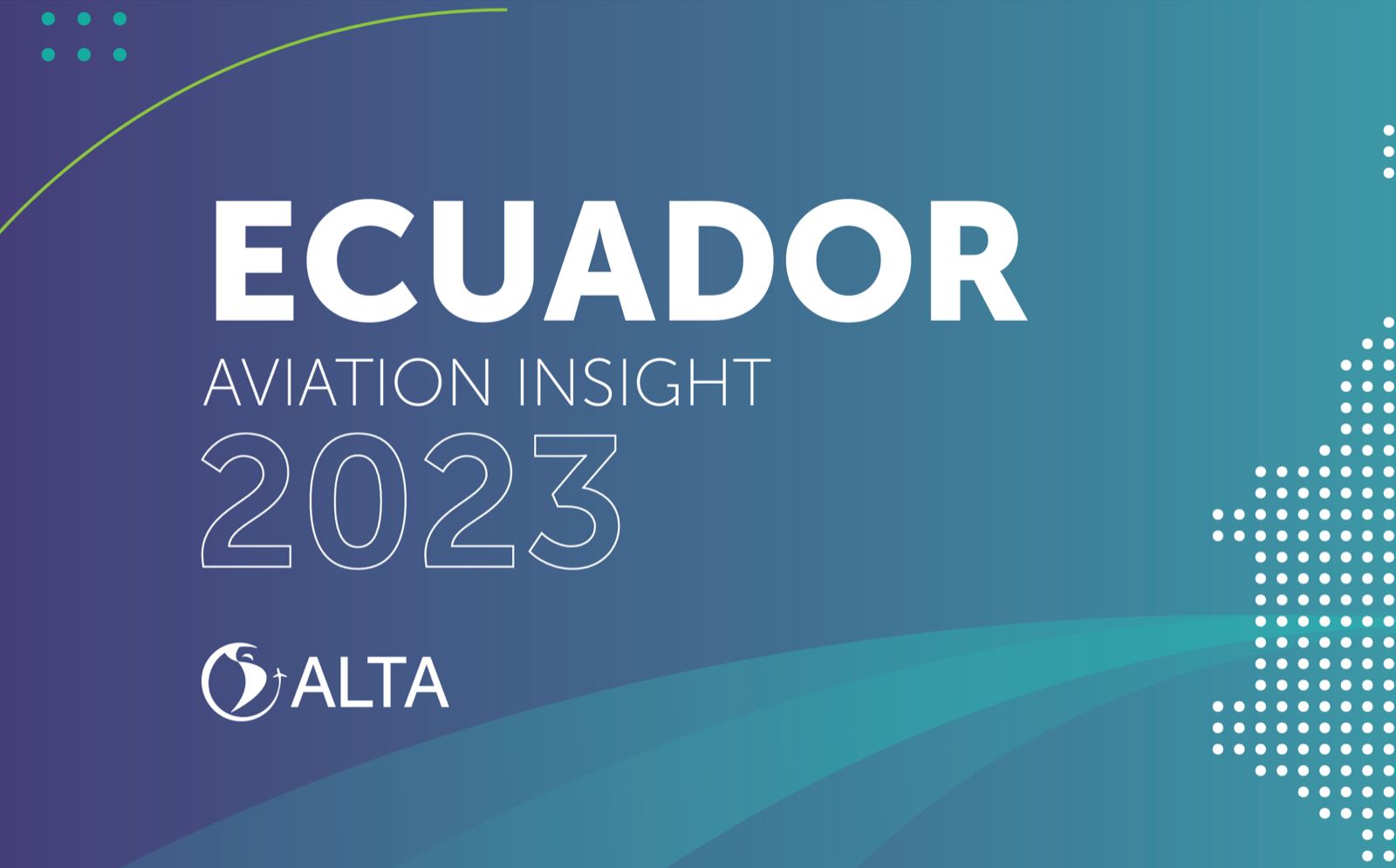Source: ALTA
- 2024 is shaping up to be a historic year for commercial aviation in Ecuador

The year 2024 looks set to be a record year for international passenger traffic in Ecuador. During the first four months of the year, 1.55 million international passengers traveled To/From the country, an 8% increase vs. 2019. “If this trend continues, 2024 will be the year with the highest international passenger traffic in Ecuador,” foresees ALTA Aviation Insight Ecuador, a statistical compilation of air transport in the country.
“Ecuador has put in place a State Agenda including aviation and tourism as essential sectors for the socio-economic development of the country. Accordingly, the State has taken measures leading to important advances for the competitiveness of air transport, such as the EcoDelta and Potencia Turística taxes’ reduction, which has contributed to democratize air transport and has encouraged passenger demand,” explains José Ricardo Botelho, ALTA’s Executive Director & CEO.
“These taxes’ reduction has allowed passengers to access more competitive tariffs and the country to improve its international connectivity. But, above all, the most important thing is the positive impact of this increase in passenger traffic on tourism and the economy in the country, thanks to the broad catalytic effect of air transport. The potential is still very large and therefore advances must continue,” ALTA’s CEO adds.
“The country is on the right track and is an example of how adopting state policies to improve competitiveness can bring benefits for everyone, but the trend can change if major challenges will not be considered,” Botelho continues.
Ecuador Aviation Insight notes that the country must pay attention to the high operating costs affecting airlines operating in Ecuador, as well as the taxes and fees imposed on passengers on both domestic and international flights. These additional costs make air service more expensive and discourage passenger demand.
Comparing operating costs in Ecuador with other key markets in the region, such as Chile, Brazil, Mexico and Panama, shows a clear competitive disadvantage for Ecuador. For example, conducting an international operation in Ecuador is, on average, almost three times more expensive than in Brazil and Chile. This cost difference not only affects the viability of airlines, but may also have long-term implications for the air connectivity in the country. High costs can limit connectivity options for passengers and negatively affect tourism and trade, which is why the challenges need to be addressed in a timely manner.
“Competitiveness in the aviation sector is crucial for the economy in a country, as greater connectivity can boost tourism, facilitate international trade and attract investment. Therefore, it is essential that Ecuador considers reducing these operating costs to improve its competitive position in the region and foster a more conducive environment for growing the aviation sector and, consequently, the domestic economy,” Botelho argues.
Ecuador Aviation Insight stresses that it is important to review some challenges related to passenger rights. Particularly, it highlights the right to cancel the trip up to 72 hours before the departure of the flight and the right to reverse the purchase of a ticket up to 48 hours after the purchase has been made. This measure causes uncertainty in flight planning and passengers are negatively impacted. It would be healthier to let these issues be addressed in each airline’s contracts of carriage with its customers.
2023 in figures
International Market:
- In 2023, international traffic To/From Ecuador experienced significant growth. A total of 5.8 million seats were offered and 4.7 million passengers were carried, representing a 40% increase in capacity vs. 2022.
- Latin American and Caribbean airlines dominated the international market with a 66% capacity, operating 35 city pairs with an average distance per flight of 2,406 kilometers.
- The Quito – Bogota route was the busiest, with 603 thousand passengers and 765 thousand seats offered in 2023, reaching a 79% load factor.
- 61% of the international capacity in Ecuador was centered on traffic within Latin America and the Caribbean.
Domestic Market:
- In 2023, domestic traffic in Ecuador grew significantly. The domestic passenger traffic reached 3.8 million, a 46% increase since 2008.
- Guayaquil – Quito was the domestic route with the highest demand, with 1.84 million passengers and 2.37 million seats in 2023, reaching a 78% load factor.
Economic Impact:
- In 2023, the contribution of the tourism and aviation sector to GDP in Ecuador was 4.4%, decreasing from the 5.3% recorded in 2019.
- The tourism and aviation sector also decreased its contribution to employment in Ecuador from 5.6% in 2019 to 4.8% in 2023.
